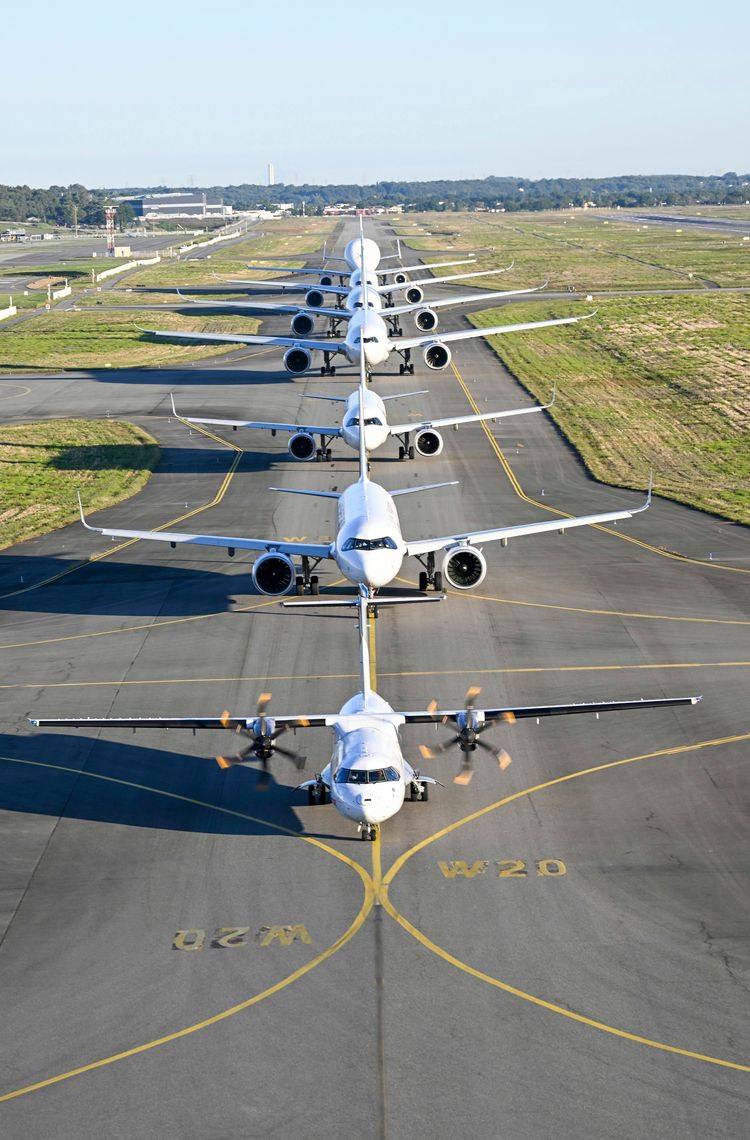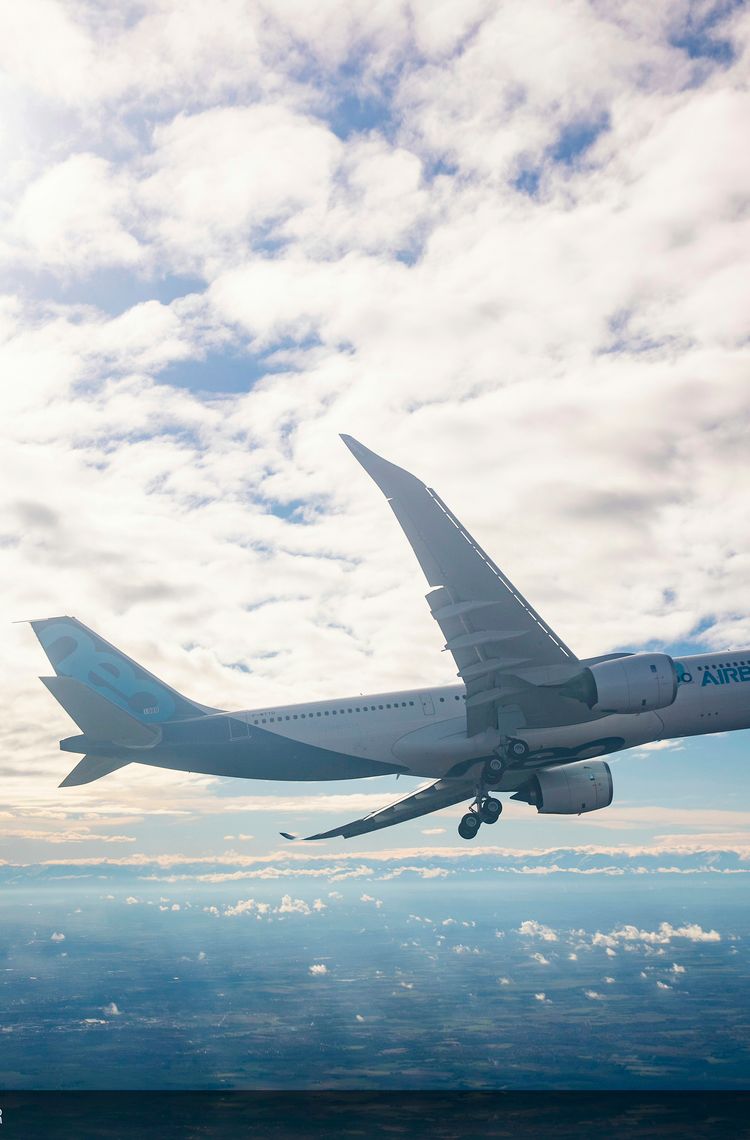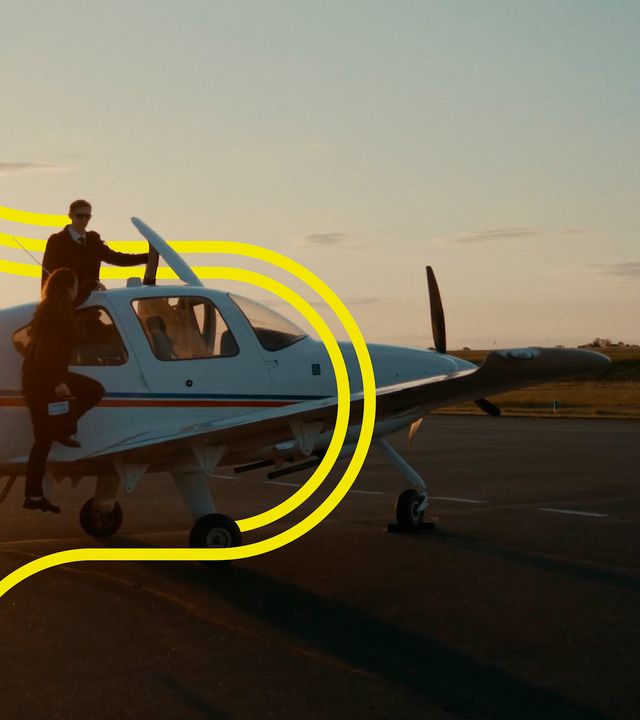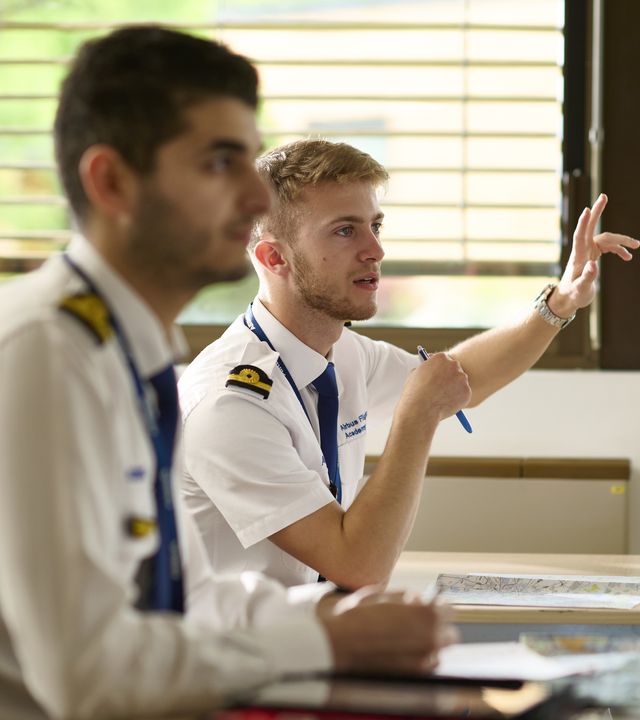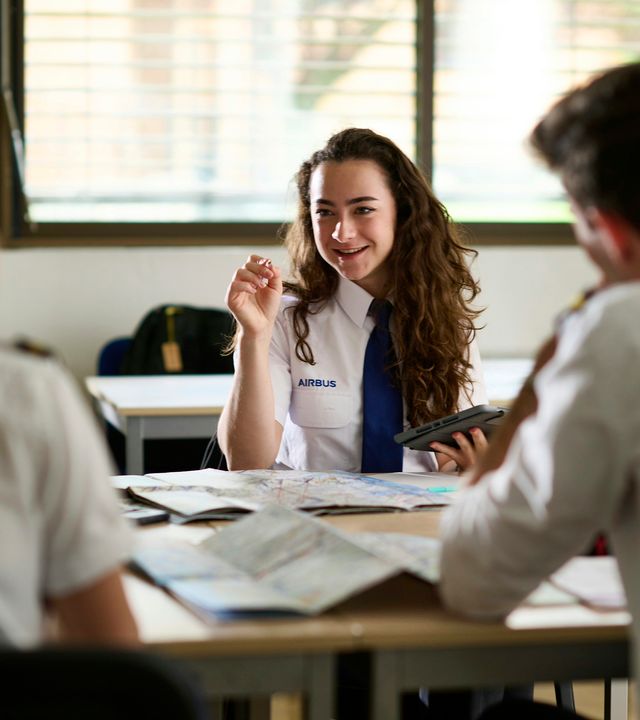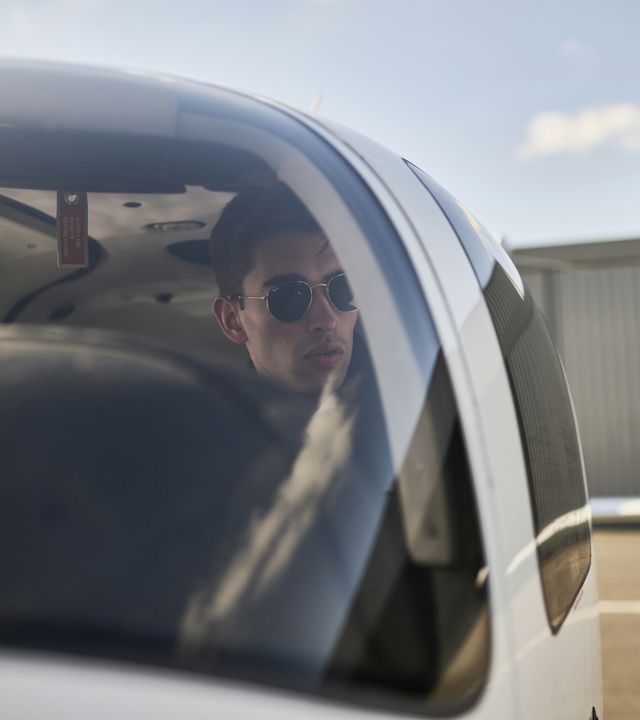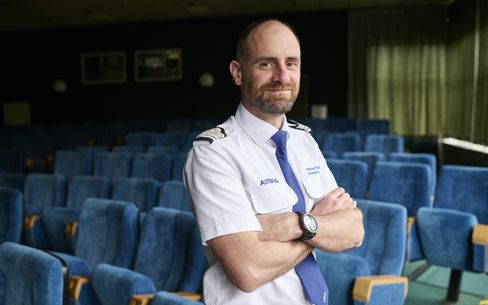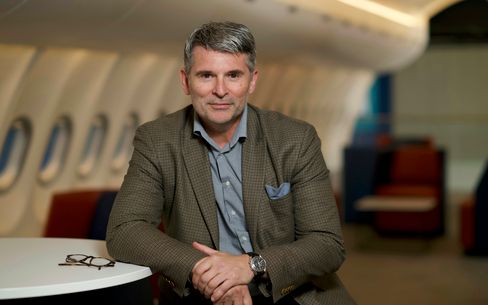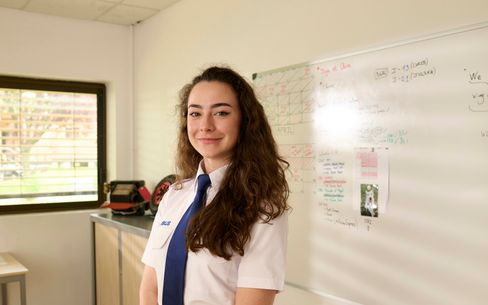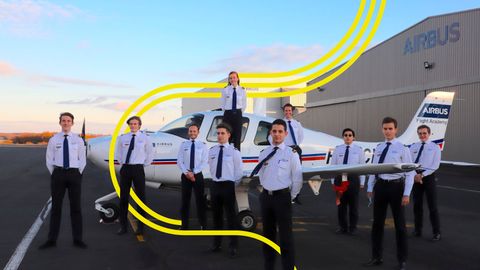Choose your pilot licence
GETTING STARTED
Choose the right pilot licence to build knowledge, skills and attitude needed for the aviation career of your dreams.
ATPL – Your comprehensive and efficient route to captain’s seat
The Airline Transport Pilot Licence (ATPL) is the most comprehensive licence for those aiming to fly as airline pilot. It provides advanced training in multi-crew operations, airline procedures, teamwork and leadership competencies. It also opens doors to airline careers, preparing you for the captain’s seat and long-term success in aviation.
MPL – Your fast track to airline-specific operations
The Multi-Crew Pilot Licence (MPL) is a customised programme and streamlined route to a particular airline, integrating its specific procedures and training requirements from day one. With a direct path to the right-hand seat, you will be ready to fly on one specific aircraft and one specific airline (until being eligible to upgrade your licence into an ATPL).
CPL – A flexible path to professional flying
The Commercial Pilot Licence (CPL) enables you to become a professional pilot in charter, cargo, business aviation... It offers flexibility, empowering you to explore different sectors of the industry while building experience. Whether you are seeking an airline career or a specialised role, the CPL provides a solid foundation for career growth.
PPL – Your first gateway to the skies
The Private Pilot Licence (PPL) is perfect for those who dream of flying for personal enjoyment. It enables pilots to explore the skies recreationally and is often the first step towards a professional career. Whether you aim to fly solo or with passengers, the PPL gives you the freedom to experience aviation on your terms. However, it’s not a prerequisite for those wishing to pursue an MPL, CPL or ATPL.
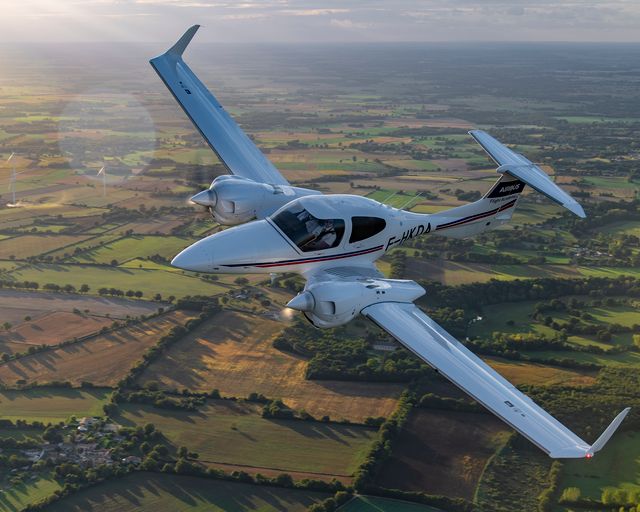
Find the right training path for you
PILOT TRAINING PATHWAYS
Your pilot training path depends on your goals and lifestyle. The integrated full-time route offers a structured, immersive experience, while modular training provides flexibility to learn at your own pace.
• Integrated training: a full-time, continuous programme offering a comprehensive and engaging path to becoming an airline professional pilot.
• Modular training: a flexible option enabling you to train according to your schedule – ideal for those balancing multiple commitments.
Experts advice
TESTIMONIES
Your questions answered
FAQ
Find answers to the most common questions about becoming a pilot and the essentials of modern pilot training.
What are the prerequisites to become a professional pilot?
To become a pilot, you must be at least 18 years old and hold a high school diploma. A strong foundation in physics and maths, and proficiency in English (equivalent to B2 level) are essential to confidently pursuing your aviation studies. Additionally, a Class 1 medical certificate – valid in the country of your flight school – is required to ensure you meet the physical and mental fitness standards. Beyond academics, qualities like determination, teamwork and responsibility are key to success in this rewarding profession.
Do I need my ATP(L) before applying to airlines?
It depends on the airline and position you are applying for. Airlines typically require pilots to hold a Commercial Pilot Licence (CPL) with Multi crew cooperation (MCC) or an Airline Transport Pilot Licence (ATPL), or be in the process of obtaining one. The ATPL is one of the most rigorous paths, giving you the necessary competencies to confidently act as an airline captain or pilot-in-command on commercial flights.
How long does it take to get a pilot licence?
The duration to obtain a pilot licence varies based on the type of licence and training pathway, from approximately 7 months for a Private Pilot Licence (PPL) to around 2 years for a Commercial Pilot Licence (CPL) or an ATPL integrated programme.
How long is the Airbus Pilot Cadet Training Programme?
The full course lasts approximately 2 years from start to completion.
Which aircraft can I fly after training?
After earning your Airline Transport Pilot Licence (ATPL), you'll complete a Type Rating to specialise in piloting the specific aircraft you want to operate.
How much does a beginner pilot earn?
A First officer's salary ranges from €3,000 to €5,000 per month, depending on experience, rank, career path, flight mission and airline type.
What exclusive assets do Airbus cadets benefit from to start and carry out their training journey?
At Airbus Flight Academy, from selections to your final training session, every element is designed to drive your progress, performance and readiness for a professional aviation career, including:
- A welcome package with iPad, logbook, uniform kits and goodies
- Top-tier instruction with highly experienced experts, using latest training techniques, standards beyond regulations, modern aircraft, immersive simulators and high-end facilities
- Individual supervision, daily support and continuous training reinforcement, ensuring an optimised preparation for required exams, training certifications and milestones
How does Airbus support cadets in mastering theoretical knowledge?
Cadets benefit from physical instructor-led classroom sessions and gain access to dedicated learning platforms like e-ATPL, featuring the latest technical inputs and high-quality educational resources designed to deepen understanding and accelerate progress.
Is there a community for Airbus cadets to assist them and connect professionally?
Yes, cadets can join the Airbus Flight Academy Alumni network, offering mutual assistance, access to exclusive resources, forums, professional events and job opportunities – while building the crucial network of a rewarding professional career.
What language is used throughout the Airbus Pilot Cadet Programme?
All training is delivered in English, reflecting real-world aviation standards and preparing cadets from around the world for international airline operations.
